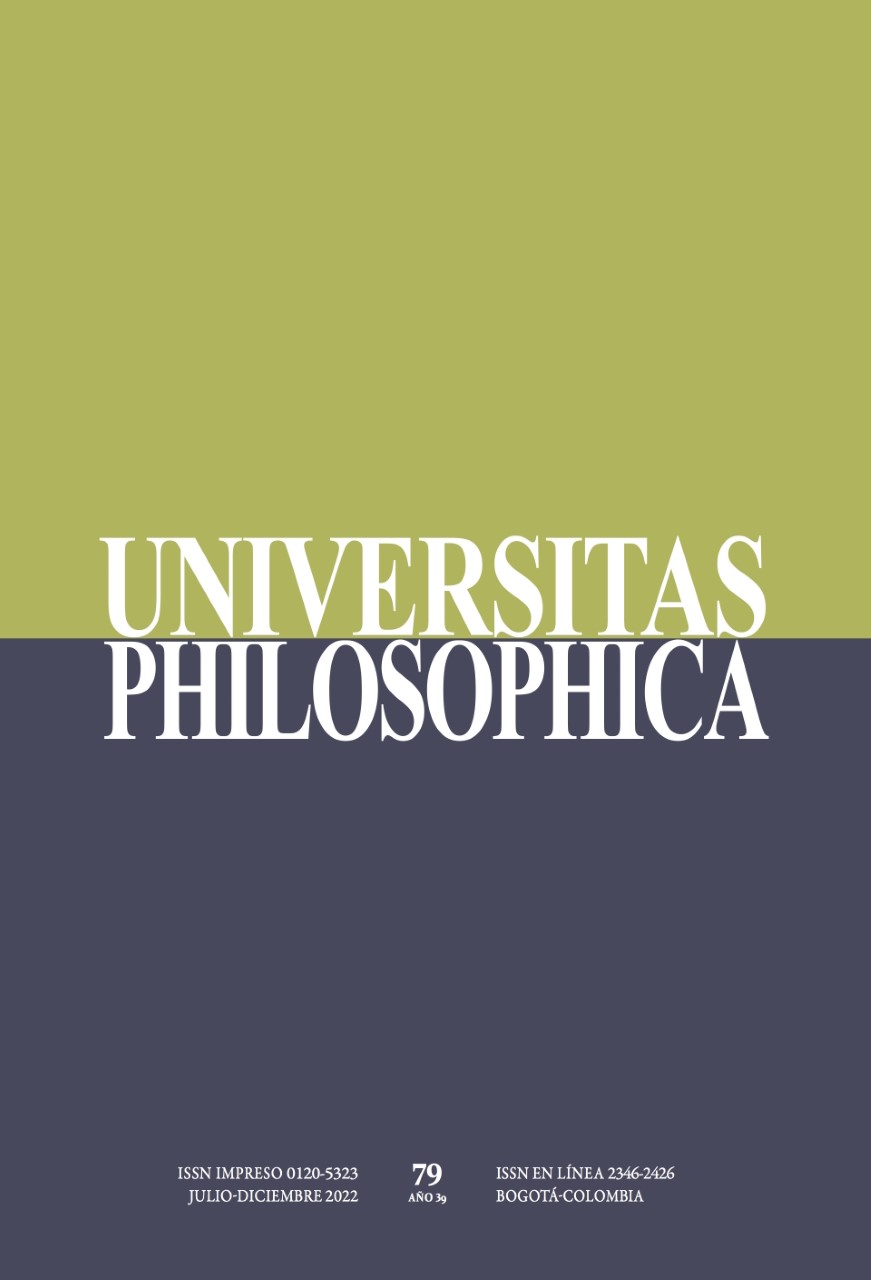Resumen
La siempre latente posibilidad de ver a la filosofía abandonar las escuelas es revisada en este texto a partir de las categorías de análisis propuestas por la injusticia epistémica, según la cual las limitaciones, en términos de silenciamiento o de falta de reconocimiento, a que son sometidos algunos individuos cuando se les considera indignos como miembros de una comunidad epistémica. Esta perspectiva permite no solo ofrecer una nueva dimensión al asunto de la presencia de la filosofía en los planes de estudio escolares, sino que permite formular propuestas para que su enseñanza ayude a superar algunas de las injusticias que ella misma ha ayudado a invisibilizar.
Beltrán, A. (2018). Morfeo. Una escuela para la libertad. Una experiencia de investigación-acción inspirada en el pensamiento del último Foucault. Instituto Nacional de Investigación Social.
Broncano, F. (2021). Conocimiento expropiado. Epistemología política en una democracia radical. Akal.
Calderón, G. y Eslava, E. (2019). Against all Odds: Scientific Education, Scientific Competences and the Ideals of an Educated Country, Colombia 1995–2010. En C. Pardo, A. Cotte & S. Fletscher (Eds.), Analysis of Science, Technology, and Innovation in Emerging Economies (pp. 195-220). Springer Nature.
Carabaña, J. (2015). La inutilidad de PISA para las escuelas. Catarata.
Cárdenas, L. y Restrepo, C. (2014). Didácticas de la filosofía. Para una pedagogía del concepto. Editorial San Pablo - Universidad de Antioquia.
Díaz, J. y Espinel, O. (2019). Fragmentos. Leer, traducir, dialogar. Uniminuto.
Cerletti, A. (2005). Enseñar filosofía. De la pregunta filosófica a la propuesta metodológica. Novedades educativas, 169, 8-14.
Cerletti, A. y D’Odorico, G. (2018). Indisciplinando la didáctica. Reflexiones sobre una experiencia filosófico-pedagógica compartida. Ensayos pedagógicos, edición especial, 27-42. https://doi.org/10.15359/rep.esp-18.3
Dotson, K. (2011). Epistemic Violence, Tracking Practices of Silencing. Hypatia, 26(2), 236-257. https://doi.org/10.1111/j.1527-2001.2011.01177.x
Eslava, E. (2022). En búsqueda del aprendizaje perdido. Una fábula educativa en tiempos de pandemia. Cuadernos de Filosofía Latinoamericana, 43(126), 69-109. https://doi.org/10.15332/25005375
Fricker, M. (2007). Epistemic Injustice. Power and the ethics of knowing. Oxford University Press.
Fricker, M. (2017). Injusticia epistémica. El poder y la ética del conocimiento. Herder.
Fricker, M. (2016). Epistemic Injustice and the Preservation of Ignorance. En R. Peels & M. Blaauw (Eds.), The Epistemic Dimensions of Ignorance (pp. 144-159). Cambridge University Press.
ICFES (2013). Sistema Nacional de Evaluación Estandarizada de la Educación. Alineación del examen SABER 11°. ICFES – Ministerio de Educación de Colombia.
ICFES (2014). Acuerdo 000023 del 23 de abril de 2014. Por el cual se aprueba la estructura y organización del examen de estado para la educación media ICFES SABER 11º y se adoptan otras determinaciones. Diario oficial de Colombia, 13 de mayo de 2014.
Kidd, I., Medina, J. & Pohlhaus Jr, G. (Eds.). (2017). The Routledge Handbook of Epistemic Injustice. Routledge.
Massó, X. (2021). El fin de la educación. La escuela que dejó de ser. Akal.
Pabón, P. & Aguirre, J. (2021). The gender component in the Colombian peace process: Obstacles to its inclusion and implementation. En J. L. Fabra-Zamora, A. Molina-Ochoa & N. C. (Eds.), The Colombian Peace Agreement. A Multidisciplinary Assessment. Routledge.
Pineda, D. (2017). Desplazamientos, transformaciones y retos de una educación filosófica en una sociedad democrática: reflexiones en torno a un viejo cuaderno de filosofía. Universitas Philosophica, 34(69), 13-51. https://doi.org/10.11144/Javeriana.uph34-69.dtrf
Pohlhaus Jr., G. (2017). Varieties of epistemic injustice. En I. Kidd, J. Medina, & G. Pohlhaus Jr. (Eds.), The Routledge Handbook of Epistemic Injustice (pp. 13-26). Routledge.
Pulido, O., Espinel, O. & Gómez, M. (2018) Filosofía y enseñanza: miradas en Iberoamérica. Editorial UPTC.
Quijano, A. (2014). Colonialidad del poder y clasificación social. En B. de Sousa y M. Meneses (Eds.), Epistemologías del Sur (Perspectivas) (pp. 67-108). Akal.
Sen, A. (2003, 28 de octubre). Speech to the Commonwealth Education conference. The Guardian [en línea]. https://www.theguardian.com/education/2003/oct/28/schools.uk4.
van der Ven, J. (s. f.). The Epistemic Injustice to Non-Western Philosophy within Academia. https://www.academia.edu/12366031/The_Epistemic_Injustice_to_Non_Western_Philosophy_within_Academia
Walker, M. (2019). Why epistemic justice matters in and for education. Asia Pacific Education Review, 20, 161-170. https://doi.org/10.1007/s12564-019-09601-4

Esta obra está bajo una licencia internacional Creative Commons Atribución 4.0.
Derechos de autor 2022 Edgar Eslava


